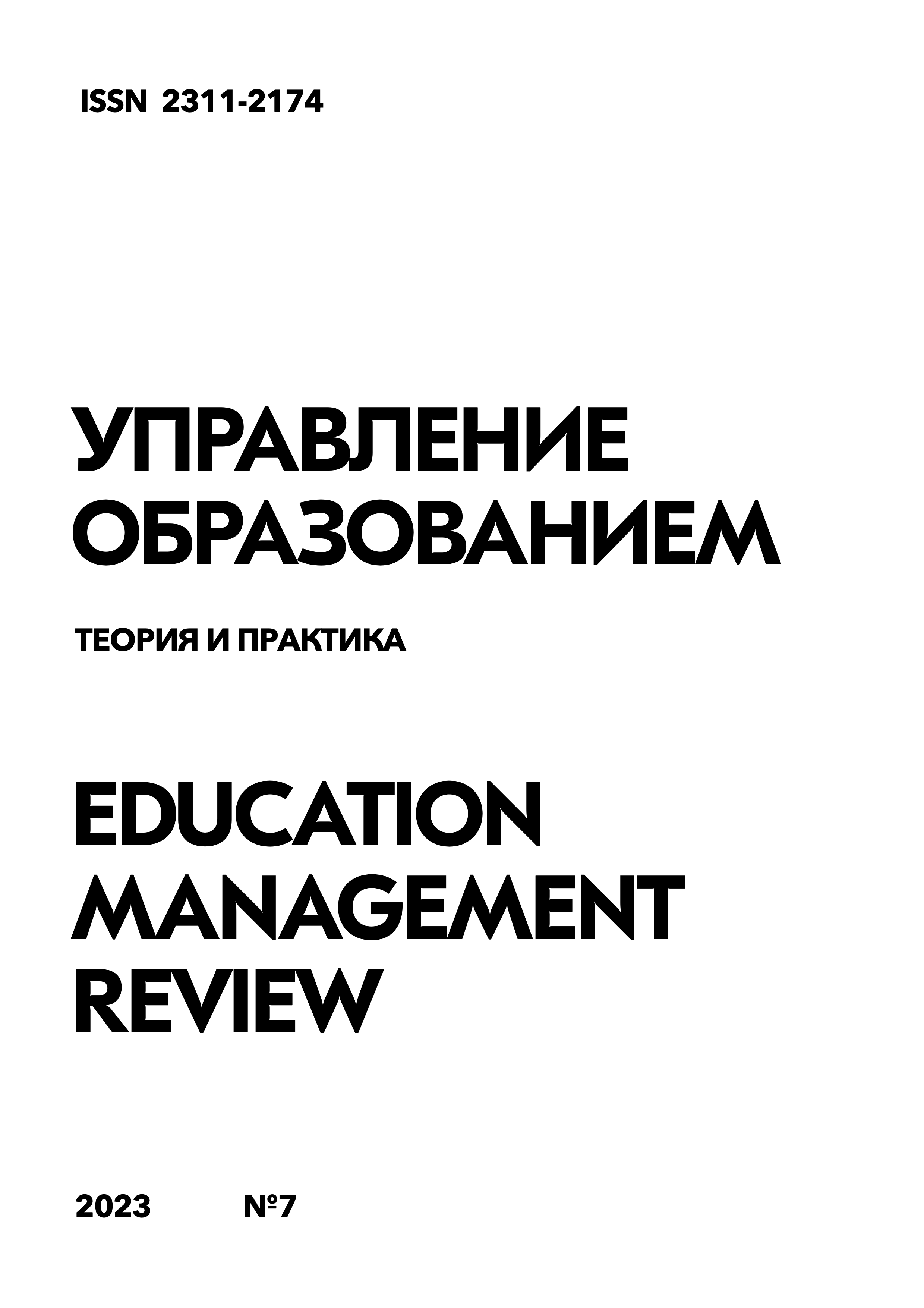Scientific and methodological support of professional development of speech therapists of educational organizations in the issues of inclusive education
DOI:
https://doi.org/10.25726/b5906-3047-8445-oKeywords:
inclusive education, speech therapist teacher, scientific and methodological support, professional developmentAbstract
The article presents and summarizes the main problems of the organization of inclusive education in educational organizations. The problem of professional readiness of speech therapy teachers to form a special inclusive space for students with disabilities (hereinafter referred to as HIA) in educational organizations is actualized and the need for scientific and methodological support of speech therapy teachers implementing adapted general education programs is proved. In the course of the study, the results of a survey of the professional needs of speech therapists of educational institutions were identified and described. Based on the content of the identified problems, the directions of further implementation of scientific and methodological support of teachers are formulated: the design and implementation of an integrated system of training teachers in the field of inclusive practice and their systematic scientific and methodological support. The purpose of the study is to develop and test a system of scientific and methodological support for speech therapists working with students with disabilities in an inclusive educational process. Scientific novelty of the research: a system of scientific and methodological support of teachers has been developed and scientifically substantiated, ensuring satisfaction of their professional difficulties and focused on professional development in the field of inclusion. The theoretical significance of the research lies in the systematization of scientific ideas about the support of professional development of speech therapists as a resource to meet their professional difficulties in the organization and implementation of inclusive education for students with disabilities. The practical significance of the work is determined by the possibility of implementing the findings of the study to meet professional difficulties and support the professional development of teachers of educational organizations working with students with disabilities in inclusion conditions.
References
Алексеева М.Н., Алехина С.В., Агафонова Е.Л. Готовность педагогов как основной фактор успешности инклюзивного процесса в образовании // Психологическая наука и образование. 2011. Том 16. № 1. С. 83–92.
Алёхина С.В., Вачков И.В. Методологические подходы к психолого-педагогическому сопровождению инклюзивного процесса в образовании // Сибирский педагогический журнал. 2014. № 5. С. 97-104.
Ахметова Д.З., Нигматов З.Г., Челнокова Т.А., Юсупова Г.В. Педагогика и психология инклюзивного образования: учебное пособие; под ред. Д.З. Ахметовой. Казань: Изд-во «Познание» Института экономики, управления и права, 2013. 19-20 с.
Информационно-методический центр города Томска. http://imc.tomsk.ru/?page_id=5640.
Информационно-методический центр города Томска. http://imc.tomsk.ru/?page_id=397.
Информационно-методический центр города Томска. http://moodle.imc.tomsk.ru/course/index.php?categoryid=27.
Козырева О.А., Хвастунова Е.П. Изучение сформированности готовности будущих педагогов к инклюзии / Научно-педагогическое обозрение. 2021. №5 (39). С. 33–40.
Кузьмина О.С., Чекалева Н.В., Четверикова Т.Ю. Организация и содержание подготовки педагогов к деятельности в условиях инклюзивного образования: монография / под общ.ред. Н.В. Чекалевой. Омск: Издатель-Полиграфист, 2014. 242 с.
Кутепова Е.Н., Сунцова А.С. Теоретический анализ проблемы инклюзивного образования в современных научных исследованиях // Вестник Череповецкого государственного университета. 2016. № 2. С. 105-110.
Малофеев Н.Н. Специальное образование в меняющемся мире. Европа: учебное пособие для студентов пед. вузов. 2-е изд. перераб. Москва: Просвещение, 2018. 447 с.
Назарова Н.М. Инклюзивное обучение: историческая динамика и перспективы // Педагогика. 2015. № 9. С. 55-63.
Наумов А.А., Ворошнина О.Р., Аюпова Е.Е., Лестова Н.Л., Лизунова Л.Р. Инновационные модели инклюзивного образования детей с ОВЗ // Мир науки, культуры, образования. 2019. № 6. С. 170- 172.
Сабельникова С.И. Развитие инклюзивного образования // Справочник руководителя образовательного учреждения. 2009. № 1. С. 42-54.
Семаго М.М., Семаго Н.Я., Дмитриева Т.П. Инклюзивное образование: от методологической модели к практике // Вестник Московского городского педагогического университета. 2010. № 4 (14). С. 81–91.
Соловьева Т.А. Системный подход к организации включения младших школьников с ограниченными возможностями здоровья в общеобразовательную среду: Монография. Москва: МПГУ, 2018. 160 с.
Хафизуллина И.Н. Формирование инклюзивной компетентности будущих учителей в процессе профессиональной подготовки: дисс. … канд. пед.наук: 13.00.08: защищена 22.03.08 / Хафизуллина Ильмира Наильевна.Астрахань, 2008.
Хитрюк В.В. Готовность педагогов к работе в условиях инклюзивного образования // Вестник Чувашского государственного педагогического университета имени И. Я. Яковлева. 2013. № 3 (79). С. 189-194.
Яковлева И.М., Яковлев С.В. Подготовка педагогических кадров к инклюзивному образованию школьников с ограниченными возможностями здоровья // Специальное образование. 2021. № 2 (62). С. 170-181.

